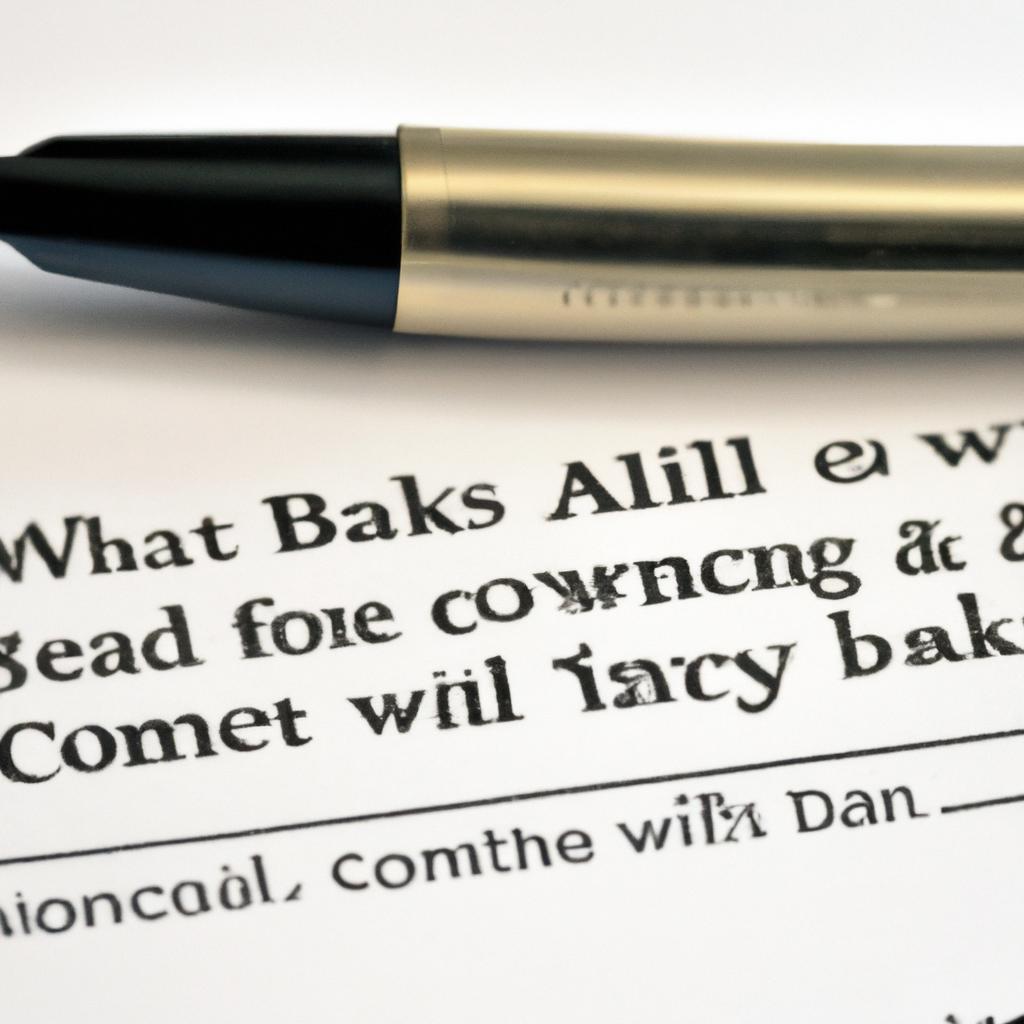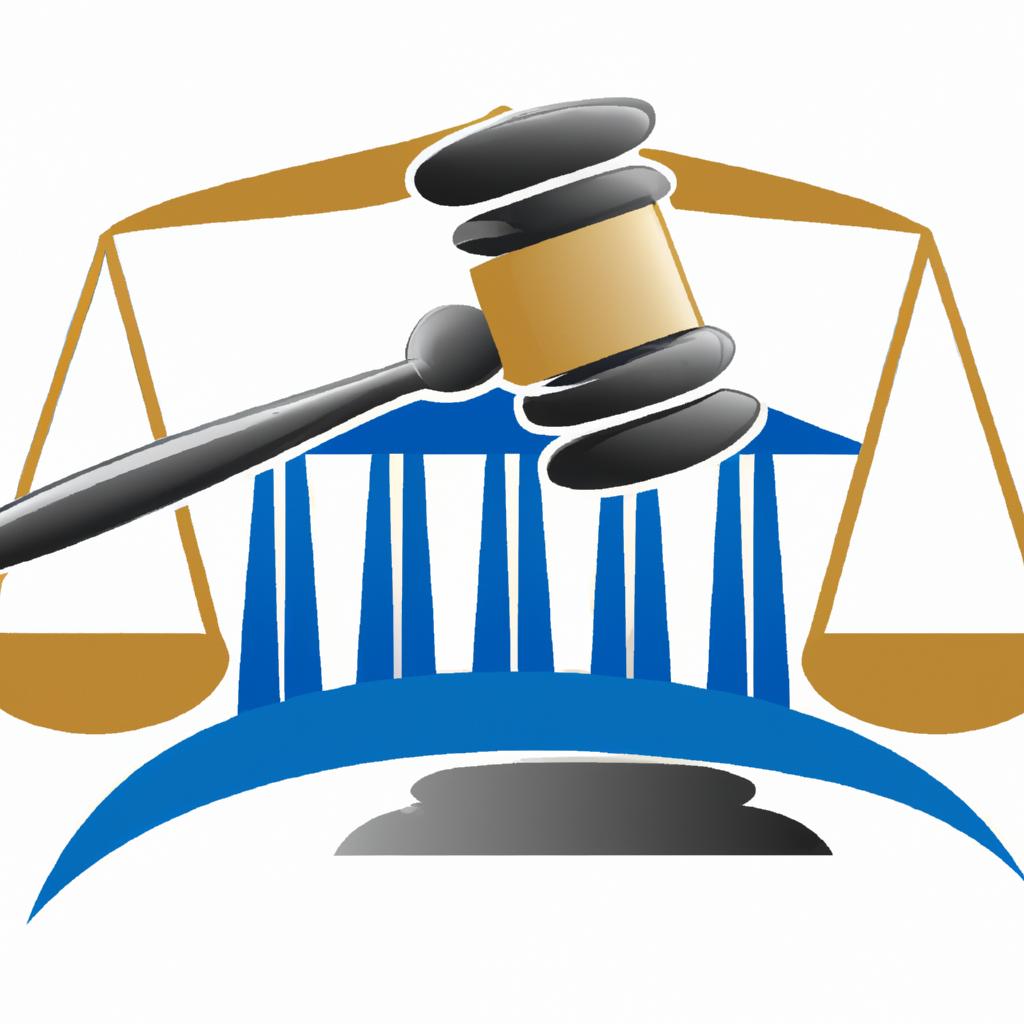In the intricacies of estate planning, a common question arises: does a will include bank accounts? As seasoned legal experts at Morgan Legal Group in New York City, we understand the importance of addressing this vital query with precision and clarity. Join us as we delve into the nuanced relationship between wills and bank accounts, unraveling the complexities of estate distribution and safeguarding your assets for future generations.
Understanding the Scope of a Will in Relation to Bank Accounts
When it comes to estate planning, one of the most common questions that arises is whether a will includes bank accounts. The scope of a will in relation to bank accounts is essential to understand in order to ensure that your assets are distributed according to your wishes. A will typically does include bank accounts, but there are certain considerations to keep in mind.
It is important to note that not all bank accounts can be included in a will. Joint accounts with rights of survivorship, payable-on-death (POD) or transfer-on-death (TOD) accounts, and accounts with designated beneficiaries are examples of accounts that pass outside of a will. However, individual accounts that do not have any beneficiaries designated can be included in a will, allowing you to specify how those assets should be distributed upon your passing. Consulting with an experienced estate planning attorney can help you navigate the complexities of including bank accounts in your will.

Key Considerations When Including Bank Accounts in a Will
When it comes to estate planning, many individuals overlook the importance of including bank accounts in their will. However, failing to address this crucial aspect can lead to complications and disputes among beneficiaries down the line. Here are some key considerations to keep in mind when including bank accounts in your will:
- Identification of Accounts: It is essential to clearly identify all bank accounts that you wish to include in your will. This includes checking accounts, savings accounts, CDs, and any other financial assets held in your name.
- Designation of Beneficiaries: Clearly specifying who the beneficiaries of your bank accounts are in your will is vital to ensure that your assets are distributed according to your wishes. Make sure to update this information regularly to reflect any changes in your life circumstances.

Alternatives to Including Bank Accounts in a Will
Bank accounts can be a significant aspect of an individual’s estate planning, but there are alternatives to including them in a will. One option is to set up payable-on-death (POD) or transfer-on-death (TOD) designations for the account. This allows the account to be transferred directly to the designated beneficiary upon the account holder’s death, bypassing the need for probate.
Another alternative is to establish a living trust and place the bank accounts into the trust. This can provide more flexibility in how assets are distributed after death and can help avoid the lengthy and costly probate process. Additionally, trusts offer privacy as they do not become public record like a will does. By exploring these alternatives, individuals can ensure that their bank accounts are properly accounted for in their estate planning without the need to include them in a will.
| Benefit | Description |
|---|---|
| Efficiency | POD/TOD designations and living trusts allow for quick and seamless transfer of bank accounts to beneficiaries. |
| Privacy | Trusts provide a level of privacy as they are not public record like wills. |

Expert Recommendations for Ensuring Proper Inclusion of Bank Accounts in Estate Planning
When it comes to estate planning, many people wonder if their bank accounts are included in their will. The answer is not as straightforward as you might think. While a will can certainly address the distribution of assets in a bank account, there are other important factors to consider as well. Here are some expert recommendations to ensure that your bank accounts are properly included in your estate planning:
- Review Your Beneficiary Designations: It’s important to review and update the beneficiary designations on your bank accounts regularly. These designations supersede any instructions in your will, so make sure they are up to date.
- Consider Joint Accounts: Joint accounts can be a useful tool for estate planning, as they automatically pass to the surviving account holder upon your death. Just be aware that joint accounts can have potential drawbacks as well.
Q&A
Q: Does a will include bank accounts?
A: Yes, a will can include instructions for how you wish for your bank accounts to be distributed after your passing.
Q: Can bank accounts be left to specific individuals in a will?
A: Absolutely, you can designate specific beneficiaries to receive money from your bank accounts in your will.
Q: What happens if a bank account is not mentioned in a will?
A: If a bank account is not specifically mentioned in a will, it will typically be subject to the laws of intestacy, which govern how assets are distributed when there is no will in place.
Q: Can I update my will to include new bank accounts?
A: Yes, it is important to regularly update your will to ensure it accurately reflects your wishes, including any new bank accounts you may have opened.
Q: Are joint bank accounts included in a will?
A: Joint bank accounts typically do not pass through a will, as they automatically transfer to the surviving account holder upon death. It is important to understand the implications of joint accounts when estate planning.
Key Takeaways
In conclusion, when preparing your will, it is important to remember that bank accounts can be included in your estate plan. By clearly stating your wishes and detailing how you want your assets distributed, you can ensure that your loved ones are taken care of after you pass away. Remember to regularly review and update your will as your financial situation changes, to guarantee that your wishes are carried out as you intend. Planning for the future is a gift you can give to those you care about most.
 As we go through life, we accumulate assets and possessions that hold both financial and sentimental value. These can include bank accounts, real estate, vehicles, and personal belongings. It’s only natural that we want to ensure these assets are taken care of and distributed according to our wishes after we pass away. This is where a will comes in – a legal document that outlines how our assets and possessions should be distributed after our death.
As we go through life, we accumulate assets and possessions that hold both financial and sentimental value. These can include bank accounts, real estate, vehicles, and personal belongings. It’s only natural that we want to ensure these assets are taken care of and distributed according to our wishes after we pass away. This is where a will comes in – a legal document that outlines how our assets and possessions should be distributed after our death.
But does a will include bank accounts? This is a question that many people have when they start thinking about creating a will. In this article, we will dive into the details of what a will covers, how bank accounts fit into it, and why it’s important to have a will in the first place.
What Is a Will?
A will, also known as a last will and testament, is a legal document that outlines how your assets and possessions should be distributed after your death. It also allows you to name an executor, someone who will be responsible for carrying out your wishes outlined in the will.
Having a will is crucial for several reasons. It ensures that your assets are distributed according to your wishes, rather than being left up to state laws. It can also minimize conflicts among family members and provide peace of mind knowing that your loved ones will be taken care of after you’re gone.
What Does a Will Cover?
A will covers a wide range of assets and possessions, including but not limited to:
1. Real estate – any property that you own, such as a house, land, or vacation home.
2. Personal belongings – this can include jewelry, artwork, antiques, and other sentimental items.
3. Investments – this can include stocks, bonds, and mutual funds.
4. Vehicles – any cars, boats, or motorcycles that you own.
5. Bank accounts – both checking and savings accounts.
As you can see, bank accounts are indeed included in a will. However, there are some important considerations to keep in mind when it comes to including bank accounts in your will.
Naming Beneficiaries for Bank Accounts
When you open a bank account, you have the option to name a beneficiary. This allows you to choose who will receive the money in your account after you pass away. When you have a beneficiary named, the funds in the account will pass directly to them, bypassing the will.
If you have a beneficiary named on your bank account, there is no need to include it in your will. In fact, it is recommended to review and update beneficiaries on all of your accounts regularly to ensure they align with your current wishes.
Joint Bank Accounts
Another important consideration for bank accounts and wills is joint accounts. Joint accounts are often held between spouses, siblings, or other family members for convenience. In the event of one account holder’s death, the surviving account holder typically becomes the sole owner of the money in the account.
In most cases, joint bank accounts do not need to be addressed in a will. However, if you have specific wishes for the funds in a joint account after your death, it is important to clarify this in your will.
Inheritance Tax on Bank Accounts
One reason why it’s important to include bank accounts in a will is to minimize inheritance tax. In some cases, assets passed down through a will may be subject to inheritance tax, also known as estate tax. This tax is paid by the person receiving the inheritance, and the amount can vary depending on the state and the value of the assets.
By outlining how you want your bank accounts to be distributed in your will, you can potentially reduce the amount of inheritance tax that your loved ones will need to pay.
Practical Tips for Including Bank Accounts in a Will
Here are a few practical tips to keep in mind when including bank accounts in a will:
1. Update your beneficiaries regularly – as mentioned earlier, it’s important to review and update beneficiaries on your accounts regularly to ensure they align with your current wishes.
2. Consult with a lawyer – while it is possible to create a will on your own, consulting with a lawyer can ensure that your will is legally valid and covers all of your assets, including bank accounts.
3. Be specific – when outlining how you want your bank accounts to be distributed, be specific. Use full names and account numbers to avoid any confusion.
In Conclusion
A will is an essential document for anyone who wants to ensure that their assets are distributed according to their wishes after they pass away. While a will does cover bank accounts, it’s essential to keep in mind that joint accounts and accounts with named beneficiaries may not need to be included in a will.
It’s vital to review and update your will regularly, especially when there are changes in your life, such as a marriage, divorce, or the birth of a child. By taking the time to create a will and including your bank accounts, you can have peace of mind knowing that your loved ones will be taken care of after you’re gone.

